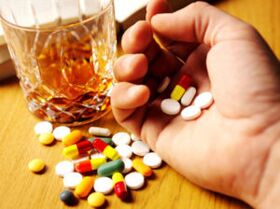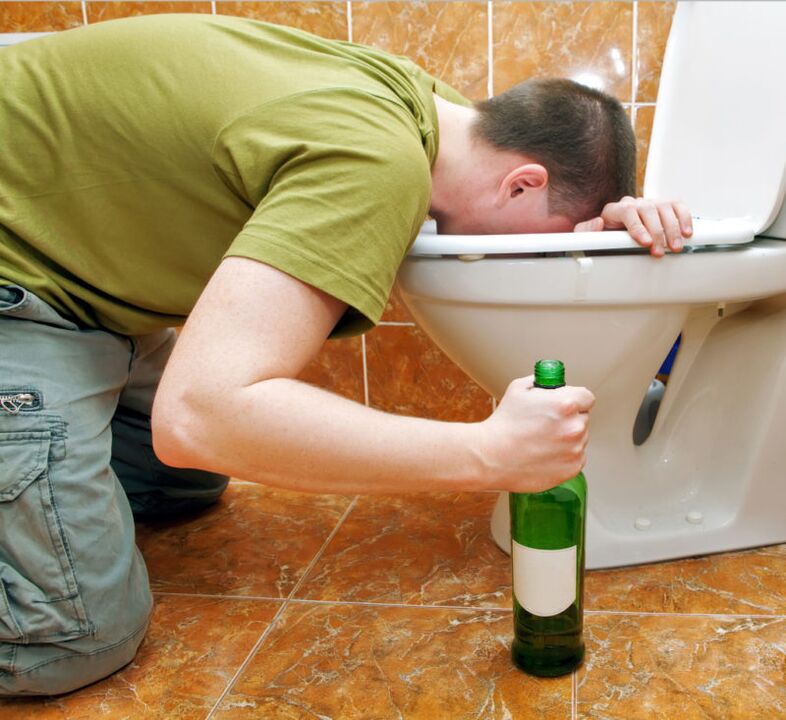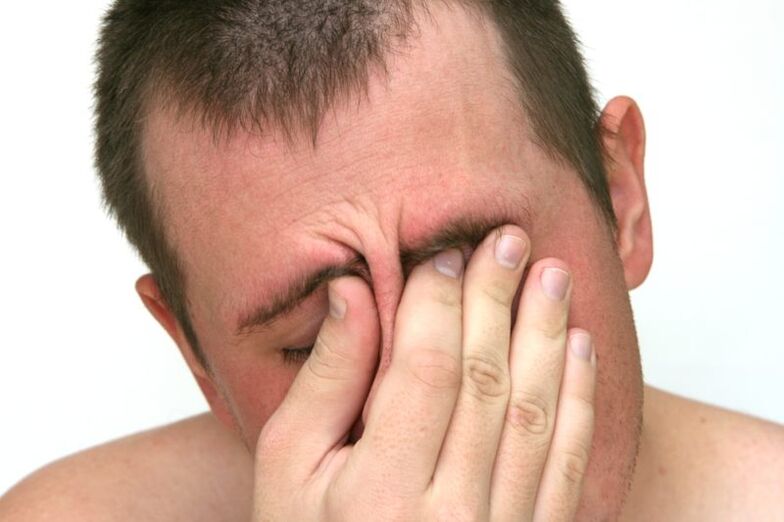
Situations where taking the same medicine on a day off is not uncommon. So the question arises, is it possible to take antibiotics and alcohol, their compatibility is in doubt?
There are many myths that the combination of alcohol and drugs is not harmful to the body.
Many people know that alcohol should not be consumed while taking antibiotics. The main question arises: why?
This is what will be discussed in this article. You will also learn about the consequences of drinking alcohol after taking antibiotics.
Next, consider why you shouldn't drink alcohol with antibiotics.
Possible consequences
Any sane person understands that health is the most important, so they don't want to risk serious consequences. This fairly common topic needs to be analyzed in detail, and should be consulted by doctors to know for sure if it is possible to drink alcohol while taking antibiotics. Experts say that taking the drug means a complete refusal of alcohol-containing products (this also applies to all low-alcohol cocktails and beers).
Long-term studies have shown that in some cases, drinking alcohol has no effect on antibiotic treatment, but it can have consequences such as:
- headache in the temple area, as well as migraine;
- poisoning;
- negative effects on the kidneys and liver;
- psychosis;
- indigestion syndrome.
Alcohol poisoning
The drug has antibacterial properties, acts on the causative agent, destroys it. Likewise, antibiotics affect the entire body, but the concentration and dose are not enough to cause harm to a person. During treatment, the organs of the urinary system and liver are overloaded, as they have to resist the toxic effects of antibiotics.

If you add more alcohol to your body, the liver will take on a huge burden, resulting in hangovers and alcohol poisoning.
The worst case scenario is when the active ingredients of the drug participate in a chemical reaction with kerosene and ethanol. In these cases, the consequences can be unpredictable, even fatal.
It should be noted that some medications are used for alcohol withdrawal. These include components that react negatively to the presence of alcohol in the blood. If you drink any drink containing alcohol and use such a drug, then the destructive processes inside the body will not be able to be stopped. Because the active ingredients of the drugs will begin to inhibit the enzyme responsible for processing and removing ethanol from the body. The process of clearing acetaldehyde stops - this is the main reason for the sudden decline in health. Acetaldehyde is very toxic, and because the body does not have the resources to clear it up on its own, toxicity continues to develop, with serious consequences.
If you ignore the warnings of your doctor and the contraindications listed in the instructions for use of the drug, you will most likely get serious poisoning, accompanied by problems such as:
- fast heart rate or arrhythmia;
- confusion, lack of coordination;
- disorders of the central nervous system;
- weakness and chills;
- vomiting;
- listless;
- drowsiness, coma;
- dysfunction of the stomach and intestines;
- problems with blood vessels;
- Acute heart failure.

When can you drink alcohol after taking antibiotics? It should be borne in mind that the human body has unique reactions and characteristics, therefore, the cause of these effects can be due to many drugs taken at the same time as alcohol. The first symptoms of poisoning may appear 10-15 minutes after drinking alcohol. And to restore health and eliminate the consequences, it will take you at least 10 days. Hence the conclusion - you can indulge yourself with wine, cognac or beer after taking antibiotics after antibiotic treatment is completed and more than 3 days have passed since the last dose of the drug. And it is allowed to drink alcohol 2 days before starting the drug.
Antibiotics and beer
The same goes for antibiotics and beer. Many people love its bitterness and bread so much that they no longer consider beer an alcoholic beverage. However, research results show that taking antibiotics in combination with alcohol will be incompatible and cause unpredictable consequences. The effect of the active substance of the drug is weaker and, therefore, is excreted from the body more slowly. This phenomenon is explained by ethanol disrupting the liver, the organ responsible for processing drugs entering the body. There are antibiotics that are strictly forbidden to take with beer.
After how many days can you drink non-alcoholic beer?
The popular belief that alcohol-free beer is not harmful during treatment is a misconception, as beer marketed as alcohol-free contains a small percentage of alcohol. Therefore, the possible consequences of combining antibiotics with this drink are the same as in the case of traditional beer of standard strength. The only caveat is that after taking antibiotics do not drink non-alcoholic beer not after 3 days, but after 2. This is explained by the fact that a small amount of alcohol is excreted from the body much faster and by the liver. operate without carrying heavy loads.
So taking antibiotics in combination with alcohol is not the best solution. Be rational and ask yourself why and how did you start the treatment? The answer is obvious, and priorities must be set: you are getting treatment to improve your health, not make the situation worse by drinking.


























